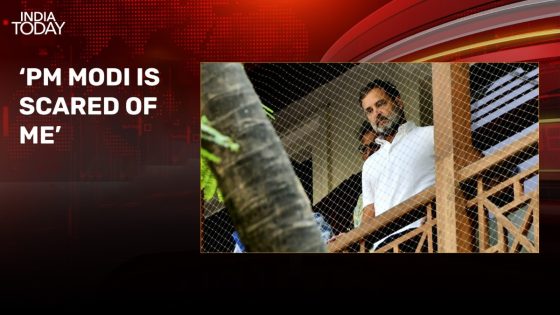After Donald Trump’s conviction on all 34 felony counts of his New York County indictment, the threats and vows of revenge began. Reuters reported that on Truth Social, under a post by Trump attacking Judge Juan Merchan as “highly conflicted,” one commentator responded by posting a picture of a hangman’s platform and a noose with the caption: “TREASONOUS MOBSTER OF THE JUSTICES SYSTEM!!”
Former Trump White House spokesperson Sarah Matthews posted that she was “praying for the safety of the judge, jurors, prosecution, witnesses, and their families.”
Trump supporters in media and politics are all singing from the same angry song sheet. Matt Walsh posted that Trump “should make and publish a list of ten high ranking Democrat criminals who he will have arrested when he takes office,” as well as “We want to see corrupt Democrats frog marched on camera in handcuffs.” The Federalist chief executive Sean Davis posted that he wanted “to see lists of which Democrat officials are going to be put in prison.”
Mussed-Looking Trump Goes on Wild Free Associative Rant at Post-Conviction Press Conference
South Carolina Republican senator Tim Scott refused to even countenance CNN anchor Abby Phillip’s question: “When former president Trump says that if he is elected president, he would appoint a special prosecutor to ‘go after the most corrupt president in the history of the United States of America, Joe Biden, and the entire Biden crime family,’ are you saying that that is not something that you would support?” Trump said that revenge was the best success, according to Scott.
In the annals of modern American politics, few figures have displayed a penchant for vengeance as blatantly as Trump. The former president’s actions and rhetoric reveal a man deeply motivated by personal grudges, a characteristic that poses a significant threat to both democracy and the rule of law. This threat rapidly intensified following his conviction. His desire for retribution against those he perceives as responsible has no apparent bounds.
From the outset of his legal battles, Trump has vehemently denied any wrongdoing and has consistently framed the judicial process as a politically motivated witch hunt. After his conviction, he has not only refused to accept the verdict, but has actively sought retribution against those involved in his prosecution.
I wouldn’t have thought I’d be worried about my political rival’s safety three years after an election where, despite our differences, we parted on good terms. (Alvin Bragg and I were opponents in the Democratic primary for Manhattan DA in 2021.) Now, I worry about him—because I know just how terrifying Trump supporters can be. I’ve dealt with threats from them over my career as a candidate and as an advocate for criminal legal system reform.
Trump’s public persona has always been marked by a combative and retaliatory nature. From his days as a TV show businessman to his tenure in the Oval Office, Trump has demonstrated a consistent pattern: those who cross him or fail to show unwavering loyalty are swiftly targeted. This behavior can be traced back to his business career, where he often engaged in legal battles against critics and former associates—over 4000 lawsuits, in fact. As president, this trait manifested in his frequent firings of officials who did not align with his views, from FBI Director James Comey to Attorney General Jeff Sessions.
Trump often uses lawsuits as weapons—not just as legal tools, but as a means to intimidate and silence opposition. This approach translated seamlessly into his presidency, where the dismissal of high-ranking officials was frequently carried out in the most public and humiliating ways possible, often via Twitter.
For example, Trump fired his top cybersecurity official, Chris Krebs, via tweet for not toeing the line on his “rigged election” claims. Such actions served as stark warnings to others within his administration: loyalty to Trump was paramount, often above duty to the Constitution or the American people.
Since leaving office, Trump’s thirst for revenge has not abated. Instead, it has intensified, fueled by a desire to reassert his influence over the Republican Party and seek retribution against perceived enemies. This includes endorsing primary challengers to incumbent Republicans who voted for his impeachment or otherwise opposed him. His influence has turned GOP primaries into loyalty tests, where candidates vie for his approval by parroting his unfounded claims of a stolen 2020 election.
Trump’s recent conviction marks a new chapter in his pursuit of vengeance. Alvin Bragg and and Judge Merchan, who presided over the trial, have become the main targets of his ire.

Republican presidential candidate and former U.S. President Donald Trump speaks during a press conference, Trump Tower in New York City, U.S., May 31, 2024.
Brendan McDermid/Reuters
It has been widely reported that Trump and his allies are planning to use the Justice Department to persecute his enemies. The man who reveled in “lock her up” chants during his first campaign—and who reportedly pressured the former SDNY U.S. Attorney to bring charges against people on the left to “even the score,” after multiple people in his orbit had been charged with crimes—has, unsurprisingly, made no secret of his plans to go after progressive prosecutors if he’s re-elected. Alvin Bragg will now presumably be at the top of that list.
Trump’s vengeful politics extend beyond individual retribution; they threaten the institutional integrity of American democracy. His persistent claims of election fraud undermine public trust in the electoral process. Efforts to oust or intimidate officials who certified the 2020 election results, from Georgia’s Secretary of State Brad Raffensperger to local election workers, create a chilling effect on those charged with upholding democratic norms.
The Jan. 6 insurrection was a glaring testament to the dangers of Trump’s revenge-driven agenda. His refusal to accept the 2020 election results, coupled with his incendiary rhetoric, incited a violent attempt to overturn a lawful democratic process. In the aftermath, Trump’s attempts to vilify and punish those who upheld the election’s integrity have only further destabilized trust in the electoral system. The ongoing harassment and threats against election officials and workers, spurred by Trump’s rhetoric, have resulted in a wave of resignations and a growing reluctance among qualified individuals to serve in these vital roles.
Moreover, Trump’s influence over the Republican Party has led to a broader acceptance of anti-democratic tactics. His endorsement of candidates who support restrictive voting laws, gerrymandering, and other measures to entrench minority rule suggests a strategy aimed at maintaining power at all costs, rather than engaging in healthy democratic competition. The passage of restrictive voting laws in states like Georgia, Texas, and Florida, often justified by unsubstantiated claims of widespread voter fraud, illustrates how Trump’s influence continues to erode democratic norms.
Donald Trump’s thirst for revenge is antithetical to the values of democratic governance. This is a critical juncture for American democracy. Trump will undoubtedly continue to inflame and mobilize his supporters with his retaliation narrative—and they will undoubtedly continue making statements like, “Someone in NY with nothing to lose needs to take care of Merchan,” and “time to start capping some leftys.” It is imperative that political leaders, the media, and the public at large recognize and counteract this threat. Only through a steadfast commitment to democratic principles can we safeguard the future of American democracy against the perils of vindictive politics.
This week’s verdict itself offers some reassurance that there can be some measure of accountability for “Teflon Don.” But, as Trump and his allies seek to retaliate against those involved in his prosecution, we need to remember what’s at stake in this election: the continued stripping away of our rights and the existential threat to democracy if Trump is re-elected. Our rejection of “revenge politics” has to start with us remaining focused on what matters most of all.
Get the Daily Beast’s biggest scoops and scandals delivered right to your inbox. Sign up now.
Stay informed and gain unlimited access to the Daily Beast’s unmatched reporting. Subscribe now.
Source Agencies


